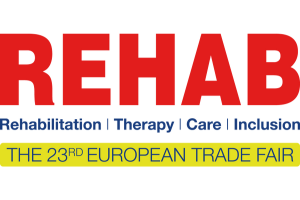Children's language acquisition and the importance of early therapy for speech development disorders
An expert presentation at the interdisciplinary conference for therapists CON.THERA
With early therapy for a speech development disorder, late effects such as reading and spelling disorders can be avoided. Photo: AdobeStock_315955219_nellas
Children with speech development disorders (SES) have a good chance of developing normally if they receive therapy in good time. Prof. Dr Julia Siegmüller is a researcher at the Fraunhofer Institute for Digital Media Technology and emphasises: “Unfortunately, prevention is not a priority in Germany.” Inadequate or delayed therapy for language processing can contribute to reading and spelling disorders and have a negative impact on the educational success and social status of those affected.
According to the S3 guideline on early therapy for SES, Germany is lagging far behind in terms of research. There is a lack of relevant studies and therapeutic interventions are often carried out too late. Siegmüller criticises: “In Germany, we still simply accept the manifestation of SES in early kindergarten age and treat the late effects at great expense.”
Speech development disorders (SES) are among the most common clinical pictures in childhood
Around 15 per cent of two-year-old children show a delay in language development with age-appropriate general development (source: dbl).
The basis for language development is already laid by the end of the second year of life: Brain areas, basic grammatical structures and a basic vocabulary are developed. If this basic structure is missing, language stimuli cannot be processed, which has a negative impact on the further development, education and social status of the affected children if left untreated.
Speech development disorders are among the most common disorders in childhood. Photo: AdobeStock_1037910185_Htet Wai Phyo__KI-Bild
The crucial point in language development is the U7 examination
Delays in language development can already be recognised at U7, a regular screening examination for all children in Germany at 24 months. Nevertheless, treatment is often only provided after the U8 at the age of four or before the child starts school. “Too late”, says Siegmüller. “The various missed developments can then no longer be made up by the time the child starts school.”
The OTUS study collects data - early speech therapy can compensate for the disadvantages of starting school
- early speech therapy can compensate for the disadvantages of starting school
“The children we started treating with OTUS therapy at the age of two are now significantly fitter than the control group,” explains Siegmüller. The children in the experimental group develop less conspicuous behaviour in the pre-school phase, have a better understanding of grammar and have significantly fewer reading and spelling difficulties.
The therapy takes into account the individual needs of the children. “We find out which stimuli the child needs and can process,” says Siegmüller. These stimuli are incorporated in a playful way in order to promote the next developmental steps. A weekly therapy session is ideal to ensure a balanced mix of input and processing. The aim is to give the child the opportunity to cope with all the stimuli that occur in the language and to be able to filter them.
OTUS project: Optimal therapy for circumscribed speech development disorder
From the age of three, speech development disorders manifest themselves chronically. In the project, children from the second birthday with speech disorders (so-called late talkers) are accompanied by speech therapists until they start school and documented according to the therapy intervals and the development of their language skills and, if necessary, treated with speech therapy. The aim of the project is to use the data collected to show that the chronification of speech development disorders can be minimised or mitigated if the children are treated with a controlled and theoretically based therapy at the correct time.
OTUS therapy is a further development of the patholinguistic therapy approach developed by Prof Dr Julia Siegmüller and her colleague Prof Dr Christina Kauschke at the University of Potsdam.
The implementation of the S3 guideline is an important step
“The success of our method proves us right. Now we need to disseminate these findings and implement the guideline so that a corresponding risk can be detected and monitored at the U7 or a daycare centre screening.” Treatment should be started quickly if the child does not develop on its own. Intervention should begin by the third birthday at the latest.
There is a lack of therapeutic approaches for children with a multicultural background
For many of these children's first languages, there are hardly any known therapeutic approaches or experience in using them alongside the acquisition of German. “To ensure that all children have the same chance of successful linguistic and social development, we need to invest in research into multilingual acquisition processes,” warns the linguist.
The CON.THERA Congress will take place parallel to the 23rd European Trade Fair for Rehabilitation, Therapy, Care and Inclusion - REHAB Karlsruhe: from 22 to 24 May 2025 at Messe Karlsruhe.Photo: Behrendt und Rausch, Messe Karlsruhe
Prof. Dr Julia Siegmüller will be speaking about the therapy and outcomes of the OTUS project at the conference for therapists CON.THERA from 22 to 24 May 2025, which is taking place at the same time as REHAB Karlsruhe.
